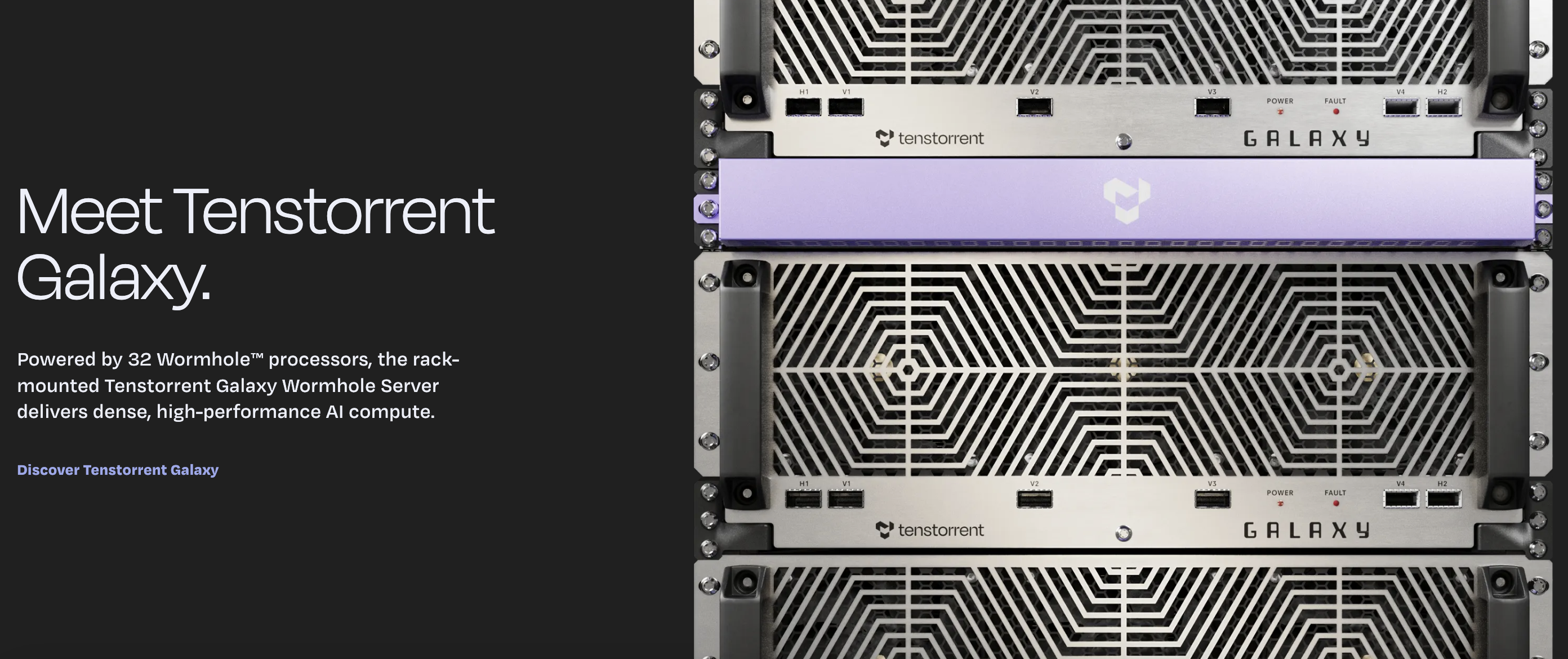Unpacking Tenstorrent and the Landscape of AI Hardware Startups
Last updated: 2024-12-15

What is Tenstorrent?
Tenstorrent, a name that has been generating buzz in the tech community, is making significant waves in the realm of artificial intelligence hardware. Founded by a notable figure in the tech industry, Jim Keller, Tenstorrent is poised to reshape how we think about and utilize AI computational power. This startup has garnered attention due to its ambitious plans and innovative technology designed to cater specifically to the needs of AI workloads.
The company's approach combines cutting-edge chip architectures with a clear focus on scalability, performance, and efficiency. Tenstorrent aims to address critical challenges that existing AI hardware faces today—namely the substantial power requirements and processing speed limitations that have historically impeded rapid advancement in the field. As the demand for AI capabilities grows exponentially, the need for advanced hardware solutions becomes increasingly essential.
The State of AI Hardware Startups
The landscape of AI hardware startups has been both vibrant and tumultuous in recent years. On one hand, we see a proliferation of companies vying for market share in a sector that is burgeoning with potential. On the other hand, there are stark realities: not all startups survive, and many struggle to attain significant funding or market traction.
Investments in AI hardware startups have surged as venture capitalists bet on the future of AI-driven industries. Highlights include major funding rounds for companies like Tenstorrent and its peers, which have collectively raised billions to innovate and compete against industry giants like NVIDIA and AMD. However, this influx of capital does not assure success, as the competition remains fierce, and the technology is complex and constantly evolving.
Challenges Facing AI Hardware Startups
AI hardware startups face several formidable challenges that may thwart their progress. One significant hurdle is the immense capital requirement needed for research, development, and production. Designing and manufacturing chips is not only expensive but also time-intensive. Startups often find themselves battling not just for funding but for technical talent as well, as the demand for experienced engineers in this niche market far exceeds supply.
Moreover, startups must also navigate the complexities of market adoption. Convincing potential customers—whether they be enterprises seeking to enhance their AI capabilities or cloud service providers to adopt new hardware—is a monumental task, particularly when established companies have entrenched positions and proven track records. As seen in the case of several failed startups, the 'if you build it, they will come' mentality rarely holds true in a competitive landscape.
Innovation is Key
For startups like Tenstorrent, innovation is not just a buzzword; it is the lifeblood of their survival. Building on expertise and vision, Tenstorrent is unveiling architectures that claim to outperform existing solutions in terms of efficiency and processing capabilities. Through innovations such as novel chip designs and architectures catered specifically for AI workloads, they hope to carve a niche for themselves.
Furthermore, a unique approach could be a game-changer for emerging startups. This includes leveraging open-source technologies or collaborating with academia to tap into emerging research trends and breakthroughs. Fast-tracking the development of new technology through partnerships can provide startups with the collaborative edge needed to innovate without bearing all the risks alone.
The Future of AI Hardware
Looking forward, the trajectory for AI hardware startups appears promising, albeit challenging. Continuous advancements in AI algorithms call for equally sophisticated hardware improvements, setting the stage for a cycle of innovation. Startups are primed to play a crucial role in this evolution, with the opportunity to disrupt established norms and redefine performance standards.
Moreover, as more industries integrate AI into their operational frameworks, there will exist a robust demand for specialized hardware that can meet diverse and nuanced needs—from deep learning applications to real-time data processing. This broadening use case spectrum is a double-edged sword, offering both opportunities and threats in a crowded marketplace.
Tenstorrent and AI Hardware Startups
Tenstorrent and the growing number of AI hardware startups embody the essence of technological evolution. They represent the spirit of innovation, the relentless pursuit of new possibilities, and the ambition to drive progress where it is most needed. As we watch this space evolve, it is clear that understanding the context in which these players operate is just as critical as understanding their technology.
For those interested in deeper dives into the tech industry, staying informed through platforms such as Hacker News provides insights and discussions that illustrate the shifting tides of the tech landscape.
As investors and tech enthusiasts, we have the privilege of witnessing this transformation firsthand. The successes and failures of these startups will ultimately shape the future of artificial intelligence and computing as we know it, leading to an exciting yet unpredictable horizon.